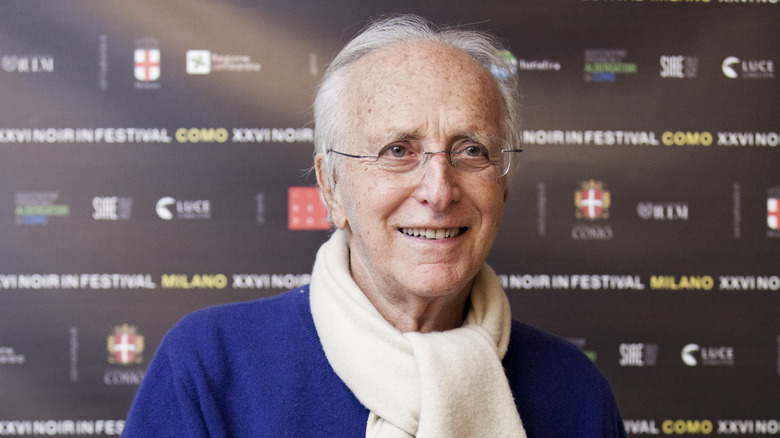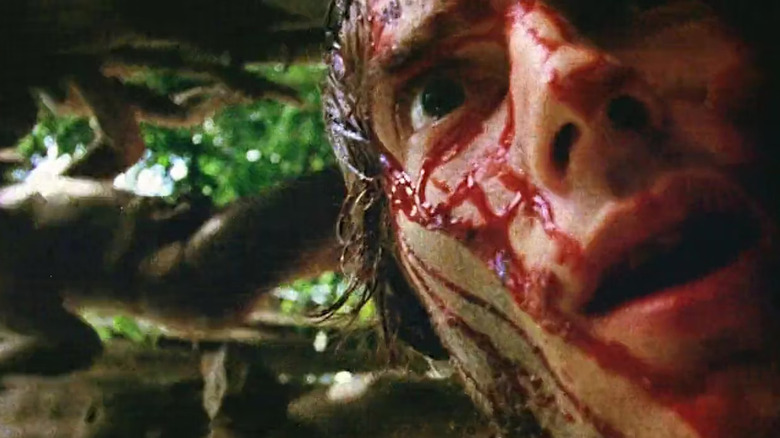Ruggero Deodato, Director Of The Controversial Horror Film Cannibal Holocaust, Dies At 83
Ruggero Deodato, director of the infamous 1980 film "Cannibal Holocaust" and one of the most boundary-pushing filmmakers in cinema history, has died at the age of 83. The Italian media reported that he died on Thursday (via The Guardian). Deodato was a prolific director with numerous credits, though he will perhaps forever be known for "Cannibal Holocaust," in large part because of the controversy he courted while promoting the film. He was so successful in convincing people that his found-footage horror film was actually created with real found footage that he ended up on trial for the murders of his actors, who had to come to court and prove they were still alive. Now that's a marketing scheme.
The brutal horror film has gone down in history as one of the most difficult to watch, because while the footage of humans dying is all faked, there are real animal deaths depicted. The onscreen deaths of a monkey, a coati, and a turtle are all truly gruesome to watch, as Deodato was testing out a theory that viewing real suffering before faked suffering would make the latter seem more realistic. The film was subsequently banned in many countries and became on of the United Kingdom's most notorious video nasties, cementing Deodato's place in extreme cinema history.
In addition to "Cannibal Holocaust," Deodato was an assistant director on the spaghetti western cult classic "Django," and he directed dozens of movies and television episodes, mostly in his native Italian language. The director's final credit was on a segment in the horror anthology "Deathcember" in 2019.
A fierce filmography
"Cannibal Holocaust" was inspired by the horrors that Deodato witnessed on the nightly news in Italy in the 1970s. There were brutal, bloody images on the television that were far worse than anything he had seen in any horror film, and he decided to create a commentary on that double standard. The violence, both real and fictionalized, served a purpose beyond simple shock value, though many audiences would only ever appreciate "Cannibal Holocaust" for being gory and gruesome. Few would look past the pure shock of it all to discover that the animals killed were all used to feed the cast and crew, and fewer still would try to see any sociopolitical themes or motivations.
Deodato got his start as an assistant director, working on Sergio Corbucci's "Django" and "Ringo and His Golden Pistol" before going on to direct his own films. He directed a bit of everything, like cop thriller "Live Like a Cop, Die Like a Man," slasher "Body Count," and sword-and-sorcery epic "The Barbarians." He also occasionally popped up in documentaries, like "Django & Django," and he had a brief cameo in Eli Roth's "Hostel: Part II."
The horror genre owes a debt to Deodato, who helped create the found footage subgenre and inspired horror filmmakers to get as gross and gory as they wanted. While some of the nuances of his legacy may be forgotten, no one will ever forget the guts and brains it took to pull off one of the greatest movie tricks of all time. "Cannibal Holocaust" is infamous for many reasons, but Deodato's audacity should forever be celebrated.

